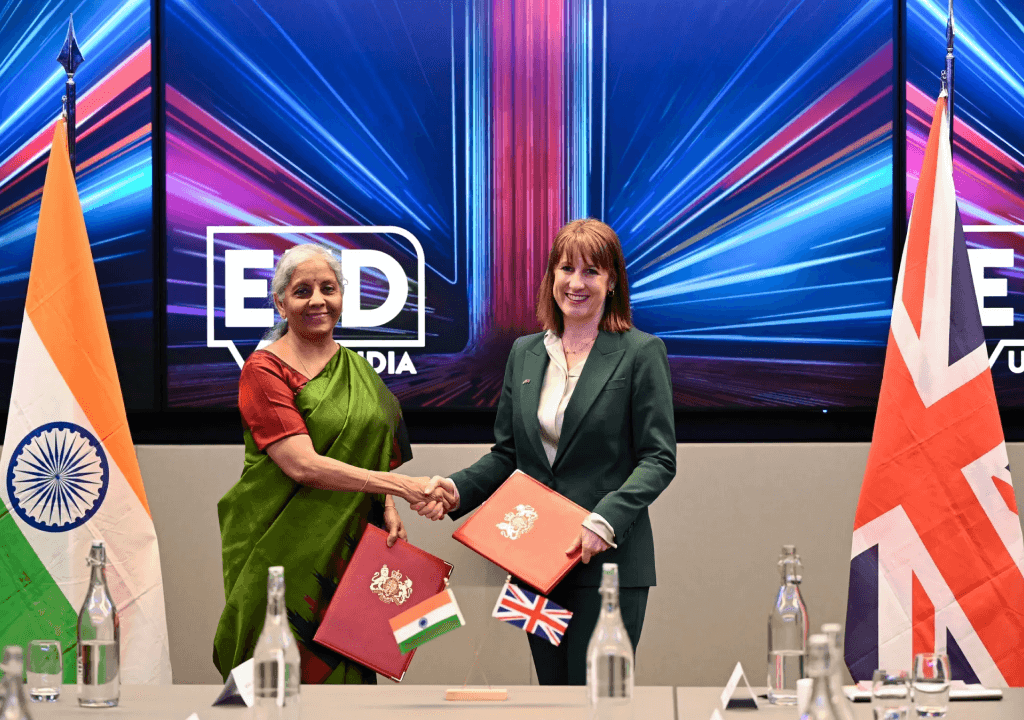After three years of negotiations, the United Kingdom and India have finalized a landmark free trade agreement that the British government claims will significantly reduce tariffs and inject an estimated £4.8 billion into the UK economy annually by 2040. The deal is also expected to create substantial job opportunities for Indian professionals, expanding access to the UK job market.
Talks had long been delayed for a variety of reasons. On India’s side, the government maintained a traditionally cautious approach to market liberalization, remaining protective of tariffs and wary of setting a precedent that could pressure them into making further concessions to other trade partners. India was also concerned about safeguarding its domestic industries from an influx of high-quality, competitively priced imports from the UK, which could undercut local manufacturers.
In the United Kingdom, political instability and a revolving door of governments repeatedly stalled progress. Nevertheless, the agreement has finally materialized, ushering in a new era of economic collaboration between the two nations.
Significant Tariff Cuts
The agreement centers on sweeping tariff reductions for British and Indian goods across nearly all sectors. India’s steep tariffs on British whisky and gin—currently at 150%—will be halved to 75%, and gradually lowered to 40% by the tenth year of implementation. Similarly, tariffs on British cars will fall from approximately 110% to just 10%, though export quotas will govern the flow of vehicles between the two countries. In total, India will slash tariffs on 90% of British product categories, including cosmetics, lamb, salmon, soft drinks, chocolate, biscuits, medical devices, aircraft components, and electrical machinery. Based on 2022 data, these cuts will be worth an estimated £400 million from day one.
The UK, in turn, will reduce import duties on Indian goods such as textiles, footwear, and food products—measures that ministers say will offer consumers lower prices and greater variety.
Immigration Concerns
The UK–India trade agreement has stirred controversy over a provision exempting Indian workers temporarily seconded to the UK—and their employers—from paying National Insurance Contributions (NICs) for up to three years. Conservative MP Kemi Badenoch criticized the arrangement, calling it a system that creates a two-tier tax structure. Some Labour MPs have also raised private concerns, particularly given recent increases in NICs for UK employers.
This exemption, which is reciprocal and applies to British employees temporarily posted to India by multinational companies, was a key demand from New Delhi and one of the longest-standing points of contention in the negotiations, finally resolved last week.
Business and Trade Secretary Jonathan Reynolds defended the exemption, claiming some were overreacting to its implications. He pointed out that the UK has 17 similar agreements with partners, including the EU, South Korea, and the US. These agreements ensure that workers on inter-company transfers between countries are not required to contribute to two social security systems simultaneously.
A Labour spokesperson criticized Badenoch’s objections, accusing her of attempting to divert attention from her own failures by raising concerns over a standard international tax arrangement. The spokesperson further emphasized that the trade deal is expected to generate an annual £4.8 billion boost to the UK economy, create jobs, raise wages by more than £2 billion annually, and lower prices for consumers.
Support for the deal also came from senior Conservative figures. Oliver Dowden, former deputy prime minister under Rishi Sunak, welcomed the agreement, noting it built on the progress made by the previous Conservative government. Steve Baker, who worked on trade policy during Brexit, described the deal as a major milestone and suggested that concerns about the tax exemption would likely prove unfounded. He emphasized that the deal marks a significant step forward in advancing free trade outside the EU.
Deal set to be signed shortly
Modi and Starmer are expected to meet in the coming months to formally sign the trade deal, which will then be ratified by the parliaments of both countries. On Tuesday, Modi announced that India and the UK had successfully concluded an ambitious and mutually beneficial free trade agreement, expressing his anticipation of welcoming Starmer to India soon. He described the deal as a historic milestone, while the UK’s Labour government praised it as the most economically significant bilateral trade agreement since Brexit—an achievement that had eluded successive Conservative governments. The deal, the largest and most consequential post-Brexit trade agreement, had been pursued by several Conservative prime ministers, including Boris Johnson and Liz Truss, who both set Diwali deadlines but failed to finalize it. Under Rishi Sunak, negotiations were nearly completed but were delayed due to the general election.








